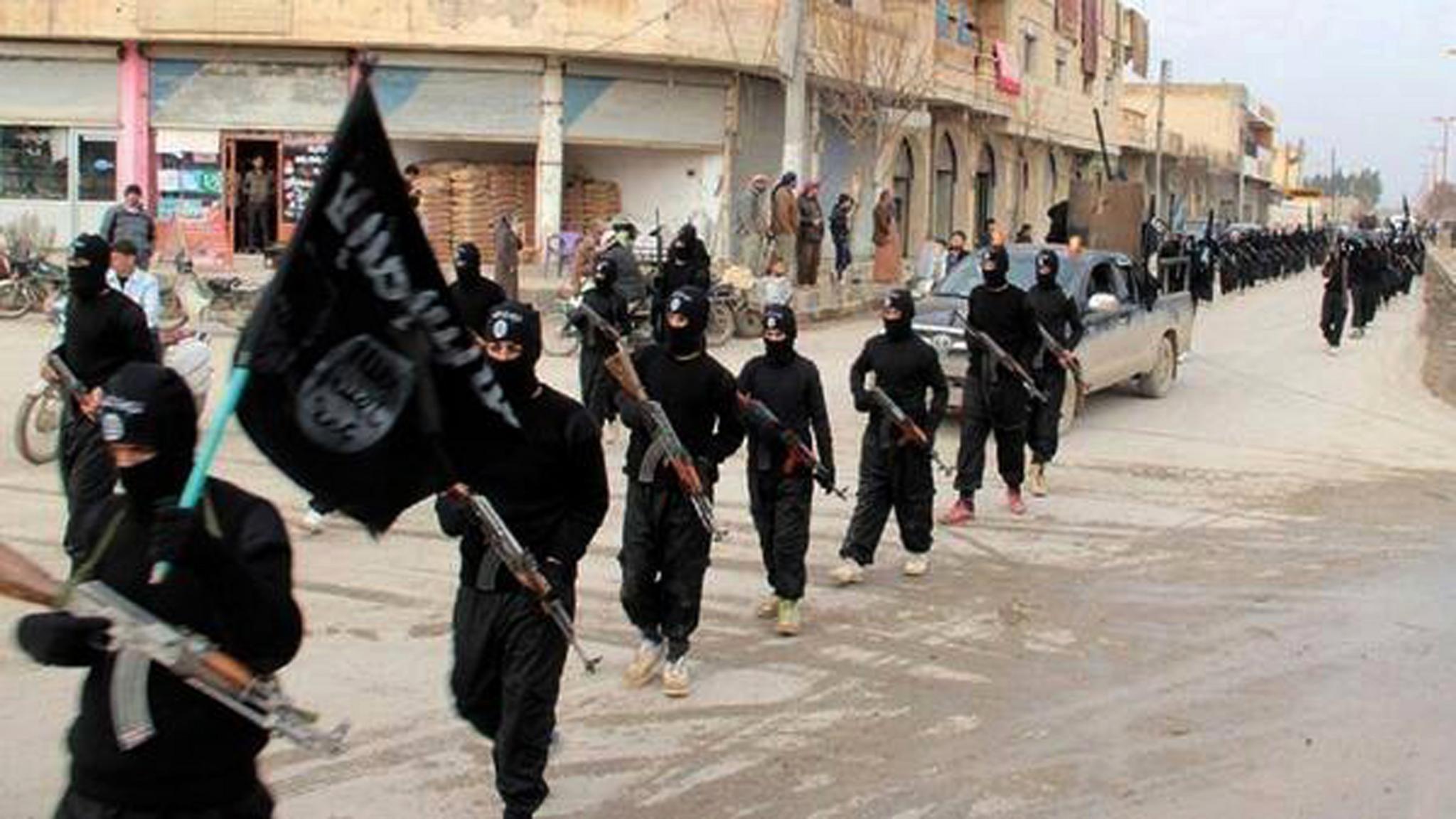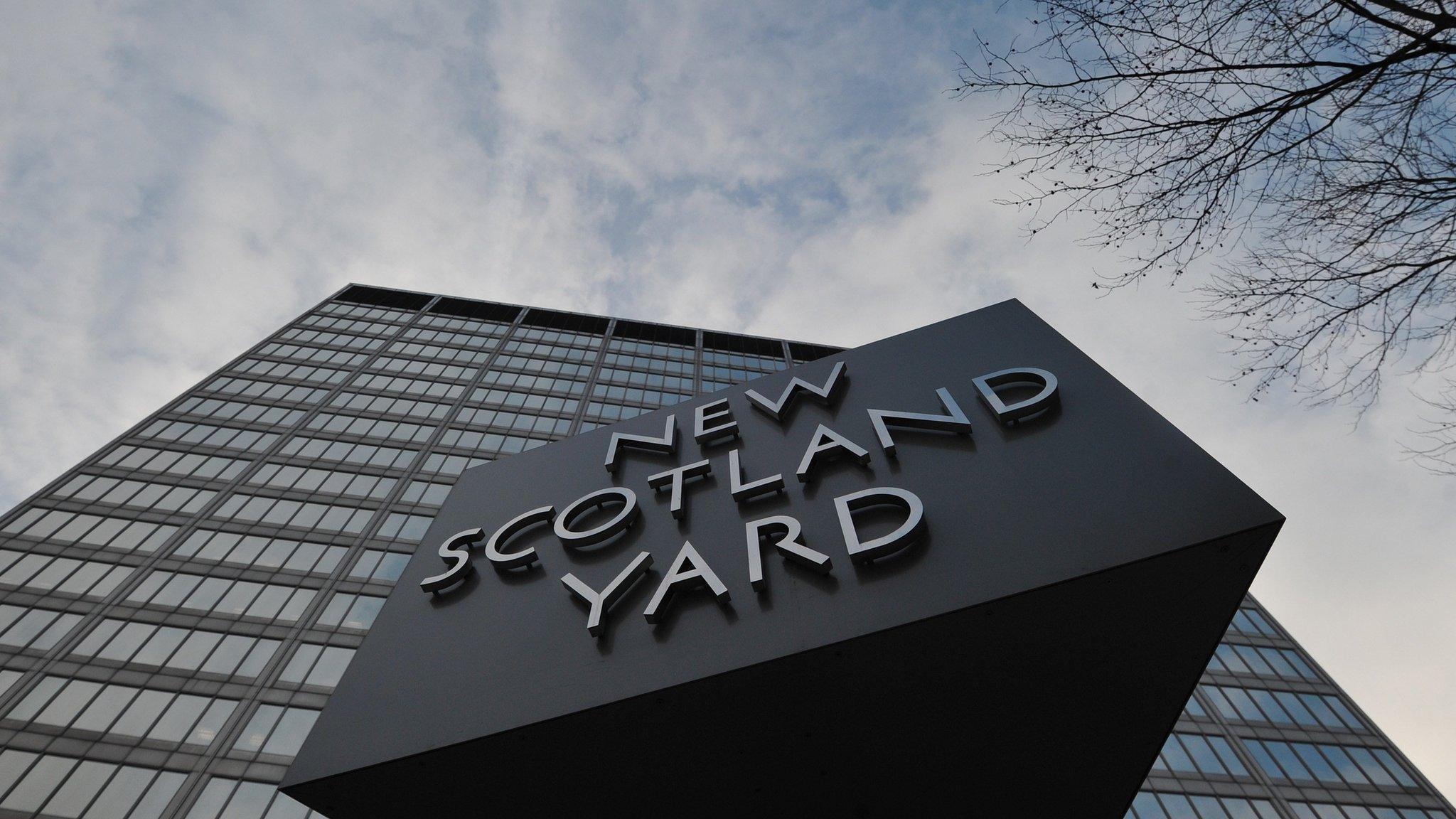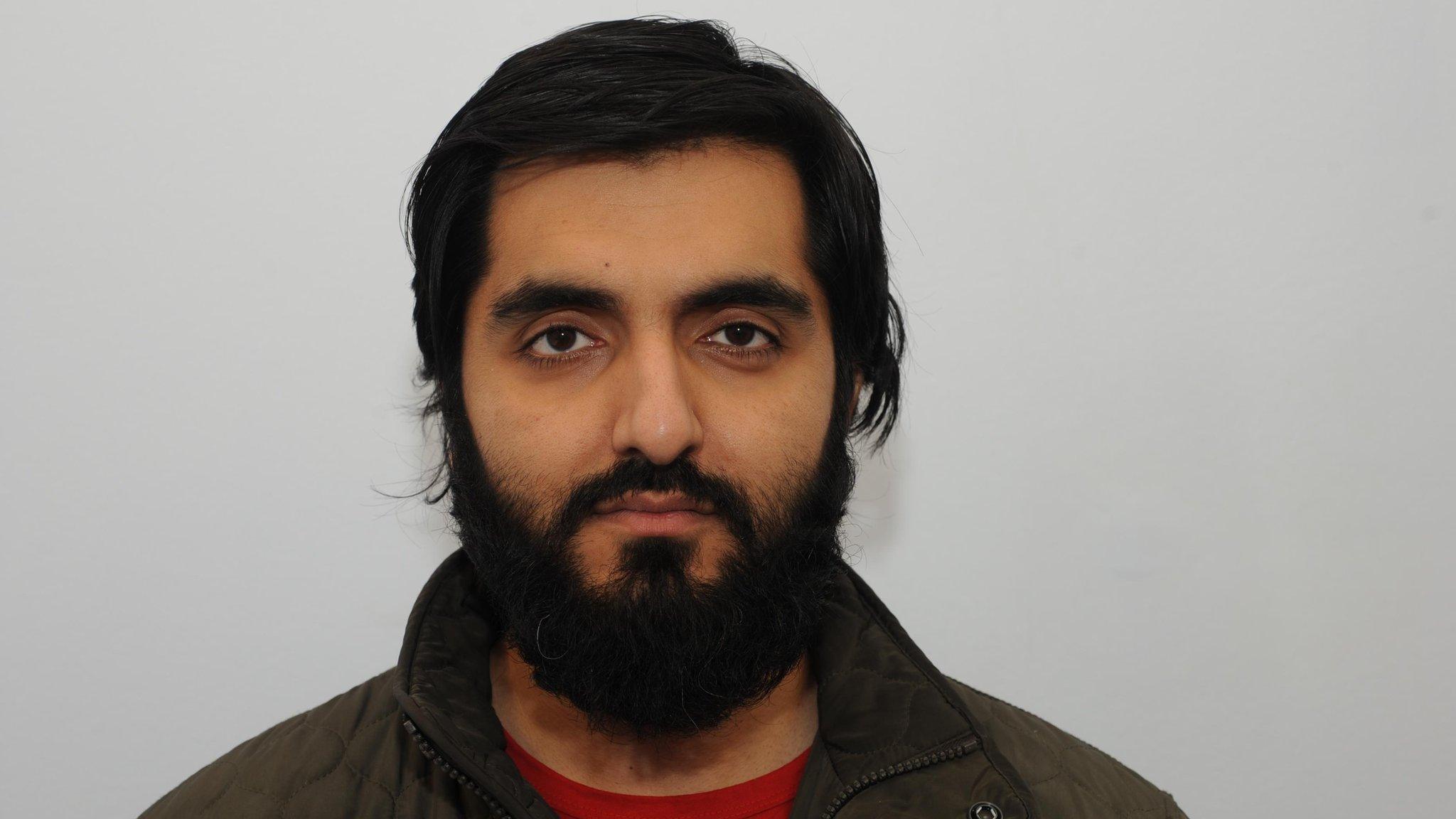UK terror threat: 'Up to five' plots stopped in 2014
- Published
"The best time to stop these young people becoming radicalised is before they go [abroad]", Sir Bernard Hogan-Howe told Andrew Marr
Four or five terror plots have been stopped this year, the commissioner of the Metropolitan Police has said.
Police have previously prevented on average one plot a year, Sir Bernard Hogan-Howe told the BBC.
He said there had been a "change to the frequency and the seriousness" of the plots seen, and there was also "growing concern" over so-called "lone-wolf" attacks that required less planning.
The terror threat level was raised from "substantial" to "severe" in August.
It moved to the second highest of five possible levels, external in response to conflicts in Iraq and Syria.
Sir Bernard's comments come on the eve of the launch of a nationwide terrorism awareness campaign.
'Change to drumbeat'
Asked on the BBC's Andrew Marr Show about potential terror plots, Sir Bernard said: "We've said on average over the last few years it's been about one a year. But this year alone we think four or five.
"Over the last few months, again you will have seen in the press we have made some significant arrests, and [they] have all been followed by charges."
He said in the past year police had seen "a change to momentum".
"I've said in the past that we've seen a change to the drumbeat, now we've seen a change to the frequency and the seriousness of the types of plots we're looking at."
As Met commissioner, Sir Bernard is responsible for both London policing and wider national security issues such as counter-terrorism.
He highlighted a police estimate that 500 people have left the UK to Iraq or Syria to fight.
"They're going to have been militarised. They will have a complex web of people that they know and of course they will have learned tactics that they may want to use here," he said.
Labour MP Khalid Mahmood earlier told the Sunday Telegraph, external he believed the number was closer to 2,000.
Two British men were reportedly killed on Saturday while fighting alongside Islamic State militants in Syria.
In total, about 27 Britons are understood to have died after joining IS.
Back in the UK, Sir Bernard suggested that using "locally-based community policing" was the best chance to tackle radicalisation.
He said lone attacks had become an increasing concern in recent months.
He said: "It doesn't take a lot of organising... There's no great complexity to it. So what that means is we have a very short time to interdict...
"That is causing real pressure on us in terms of resources and in terms of judgement making, which is a very difficult thing for all involved."
'Diverse' threat
Home Secretary Theresa May echoed Sir Bernard's comments about the nature of the threat.
"The threat is more diverse in terms of the number of groups out there who will be looking to carry out attacks on the West," she told the Marr show.
"It's also more diverse in that not everybody's affiliated to one particular group.
"Some are self-starting groups, and then you do have individuals. Perhaps the lone wolfs or the volatile individuals."
Sir Bernard said police were running a campaign every day this week on the different ways the public could remain vigilant.
Officers will be briefing more than 6,000 people at 80 venues including schools, universities, airports, shopping centres, cinemas and farms in a bid to engage the public and businesses in preventing attacks.
"We'll talk about crowded places, we'll talk about transport hubs, we'll talk about the fact that we're trying to cut off money from terrorists," he said.
- Published22 November 2014

- Published7 October 2014

- Published27 October 2014
